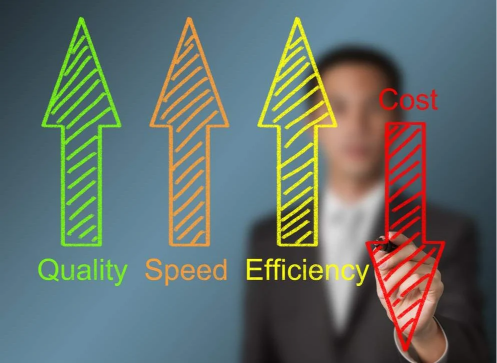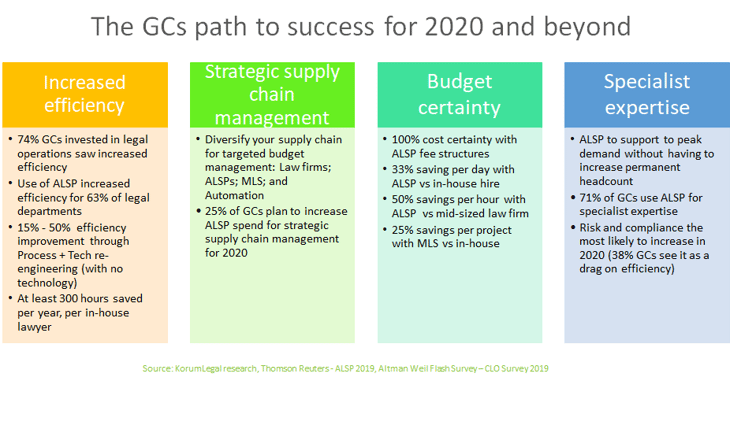Adopt Legal Solutions to Reduce Costs and Increase Value.

This is a decade of fast moving change. And it’s coming from all directions. External forces are requiring business leaders to consider not just traditional business indicators, but also political, social and environmental impacts.
Internally, business operating models are being restructured to adopt to the changing markets, brought on by an increased consumer demand for a “tech savvy” service, and a new wave of corporate leaders who do things differently to the previous generation. A “normal” change you might say, but still one that has huge impact on business – teaching an old dog new tricks is a difficult task.
In amongst all these requirements to change, business leaders are asking / being asked to reduce costs. The uncertain global times means that the future is increasingly unpredictable, and businesses need to be ready and prepared for all scenarios, as much as possible. We all learnt from the great “Global Financial Crisis”, and companies (rightly so) are preparing for the next downturn predicted for the next coming year or so.
But of course, with all this change, to throw a spanner in the works, is the demand to reduce costs and focus on margins… all while the business demands more. More value, high quality and greater coverage.
Optimising Legal Costs: Strategic Approaches for Multinational Corporations (MNCs) in Uncertain Times
Legal services are renowned for being expensive, but a robust legal solution is a crucial part of any business, particularly large multinational corporations (MNCs), so how do you reduce legal costs, maintain (and improve) legal value without sacrificing quality?
There is a legal solution is readily available, that presents a great opportunity to enhance legal value while managing legal costs effectively. Making it the perfect time for legal departments to reconfigure, look at the legal department's strategic goals, outputs, supplychain, and ensure that legal service providers (third-party partners) are the right fit for the strategic outcomes.
There are many new legal solutions to aim to reduce external and internal legal costs, while still maintaining legal value and providing high quality work, some of these include:
-
Managed Legal Services (MLS) : Your Dedicated External In-House Legal Team
Managed Legal Services (MLS) is a legal solution that enables you to outsource projects or specific legal work streams to a third party. The Managed Legal Services team acts as an extension of the in-house team and works closely with them to ensure the delivery is aligned to the business needs. This is key to maintaining the quality of legal service and ensuring legal values.
Crucially, Managed Legal Services can incorporate people, process and LegalTech. People to manage and complete the work, efficient processes for high quality delivery and technology to support the people and processes. From a budget perspective Managed Legal Services can reduce legal costs by at least 25% per project compared to in-house people (much more when compared to law firms). See the below case studies for examples of how Managed Legal Services can be adopted to maximise legal value.
Key: There are numerous providers of Managed Legal Services, all with different offerings and price points. It’s important to do your research and speak to the experts and understand what you want/need to choose the best alternative legal service for your organisation.
-
Process and Technology: Your Comprehensive Toolbox for Transforming Legal Operations
Legal operations is the backbone of the legal department. It gives you the structure and the toolkit that a legal department needs to ensure that it can achieve its goals. Building up internal capabilities to assess data, manage legal costs, manage change management and manage technology within the legal team is crucial. Effective legal operations enhance your team’s output, making it better, more efficient, and data driven. This ensures that the legal department delivers significant legal value and becomes an asset, rather than a hindrance, to business growth. In 2019, 74% of GCs who invested in legal operations saw increased efficiency by between 15% to 50%. See the below case studies for examples of how process + tech can be implemented to provide effective legal solutions and optimise legal operations.
Key: Getting the ball rolling is key. Speak to an expert about your pain points and then they can guide you toward the right legal solutions to improve your legal operations. Beware of technology implementations without a proper assessment of your processes to ensure you maximise legal value and manage legal costs effectively.
-
Secondment Style Resourcing: Enhancing Value and Efficiency Without Permanent Expansion
This legal solution is not new, it’s been available in the industry for the last decade, by law firms and Alternative Legal Service Providers (ALSPs) alike. However, the market use case for this legal solution has evolved in recent years. While, it’s still used for capacity overfill, but more and more it’s been used more strategically. In 2019, 71% of GC’s used ALSP’s for specialist expertise, with risk and compliance being the biggest growth area for this legal solution resource. This legal solution is also extremely cost effective – 33% saving per day when compared to an in-house hire and a 55% saving per hour when compared to mid-sized law firm. By leveraging secondment-style resourcing, organisations can significantly reduce their legal costs while enhancing their access to specialised legal value.
Key: Move quickly. Consulting moves quickly, with consultants’ availability changing depending on demand. Having processes set up to ensure you can move quickly to a decision ensures you secure the best talent for the legal solution, optimising legal cost and maximising legal value.
If you want to learn more about the above, we love a chat and a coffee, so please reach out.
Case Studies:
|
Managed Legal Services (MLS) case study: Our client operates a global platform that provides online hotel booking services and is headquartered in Singapore. The client wanted to innovate its business and enter into a new business stream, where it had no previous touch points and potentially high legal and regulatory risk. It needed expert legal and compliance support fast. KorumLegal’s MLS solution solution included the following:
The end result is that our MLS team supported the client to develop and implement a full regulatory and compliance programme for APAC. The next stage is to optimise our team’s regional experience with regulators and support the client to apply for strategic licences. |
|
Process + Tech case study: A small foreign law firm based in Singapore specializing in arbitration and dispute resolution regionally and in Europe, joined Lighten-up as they wanted to introduce technology into their practice. They were still carrying out their client triage and onboarding process manually, recording client’ details in Excel – a time consuming task. They did not have a Practice Management System (PMS) and were keen to have more automation, as well as have a PMS for matter tracking, time-recording, notifications, invoice generation and reports. KorumLegal worked with the client on a two-pronged approach:
This resulted in a refinement of the firm’s onboarding processes “cutting the fat” to increase efficiencies by up to 35% - without the tech implementation. |
See below for a few stats on how the above solutions can help you fulfil your legal department dreams:

Annalise Haigh
Jan 30, 2020
Related Posts.
By: Titus Rahiri
Unlocking Legal Value: How ALSPs Cut Costs and Add Value
With many companies in their recovery and rebound phase following the challenges that Covid has presented over the past 18 months, value innovation and legal cost reduction have become a central..
By: Lily Evans and Amanda Levay
LegalTech Soapbox: Streamline and safeguard your daily operations with Redactable
1. Hi Amanda, tell us the story behind Redactable.
As a loan consultant, I discovered firsthand that simply drawing black boxes over sensitive information in PDFs didn't actually remove the data,..
